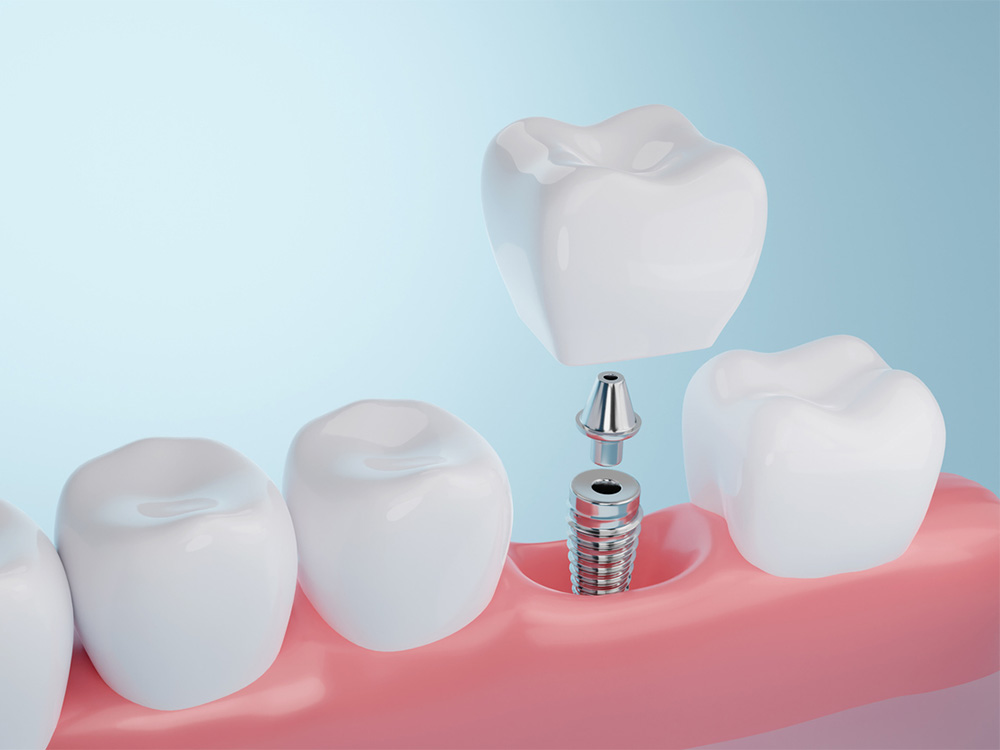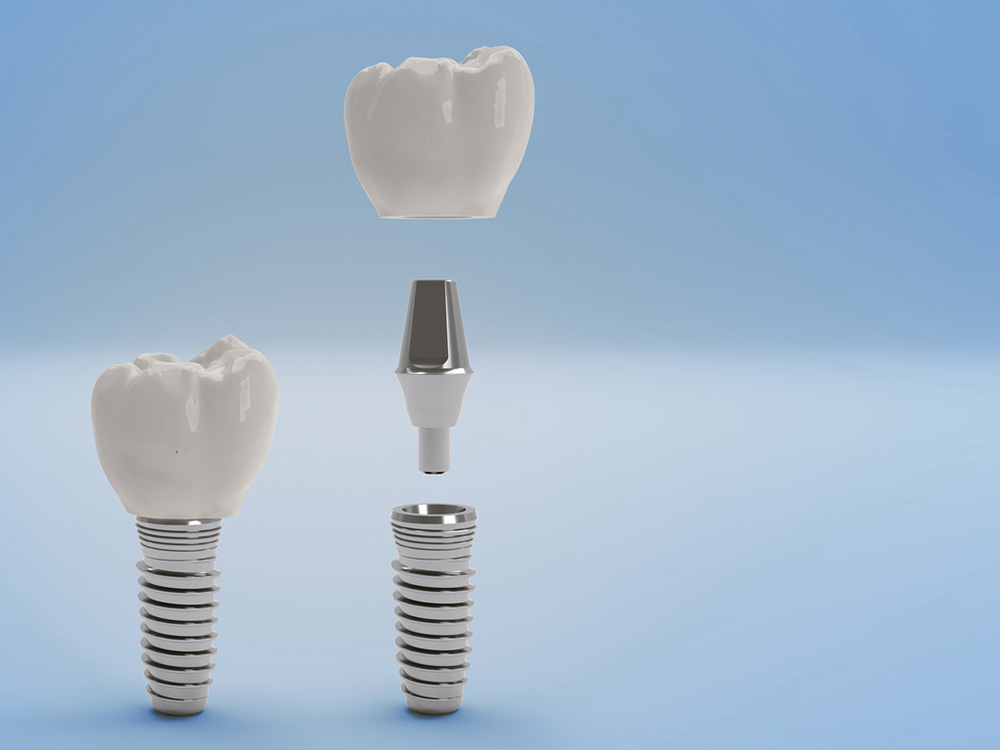Dental Implants in Scottsbluff, NE
Revitalize your smile and confidence with our state-of-the-art dental implants in Scottsbluff, NE, a durable and natural-looking solution for missing teeth.
Dental Implants
Dental implants are small posts made of a titanium alloy. They are surgically placed in the jawbone and are used to replace individual missing teeth or partial dentures or to support all-on-4 implants. Dental implants are an excellent solution for replacing individual teeth as they act as an artificial root for a crown. By stabilizing bone levels, they prevent bone loss, leading to better long-term support, function, and aesthetics.
Compared to other tooth replacement options, dental implants feel and look more natural, so you can eat and speak with ease. With dental implants, you can be confident in the durability and effectiveness of your tooth replacement. Give us a call for your dental implant consultation!
Call For Your Consultation

How Much Do Dental Implants Cost?
At Platte Valley Dental Group, we offer affordable and high-quality dental care, including dental implants, which can vary in cost depending on factors such as materials and insurance coverage. After your initial consultation, we can estimate your procedure’s cost and help you navigate payment options, insurance coverage, and other concerns. Our Platte Valley Dental Group Savings Plan is available to patients without insurance to help reduce costs. We also accept external payment plans from CareCredit.
Dental Implant Process at Platte Valley Dental Group
- Consultation & Exam. To decide if dental implants are the right restoration method for you, we will conduct a full exam, which will include the taking of a dental x-ray, and discuss your treatment options.
- Tooth Extraction & Bone Grafting. If any teeth require extraction, the procedure will be scheduled once a treatment plan is established. This will also require recovery time to ensure the site is ready for the implant procedure. Any bone grafting necessary to support the implant will then take place, which will require at least a few months to heal.
- Implant placement. Once the site is ready, the implantation can take place. The implant will be placed into the jawbone, and a healing cap will be placed over the implant. Regular check-ups follow this to ensure proper healing.
- Implant healing. After your implant is placed, osseointegration begins. During this, your jawbone heals around the dental implant, providing a solid base for your new artificial tooth. This process takes approximately 3 months.
- Abutment & Crown Placement. Once healing is complete, the abutment or connecting piece and replacement tooth, or crown, can be placed.
Common Questions About Dental Implants
-
Are there any aftercare instructions for dental implants?
Immediately after dental implant placement, you should be careful not to disturb the placement site. This means no chewing near the implant. It also requires very careful cleaning for several weeks to a month after placement. The dental implant takes several months to fuse to the jaw so the fewer disturbances during that period the better. If you have a temporary denture to replace your missing dentition, the denture must not rub on the surgical site.
After implantation, and extraction or grafting if required, you may experience typical discomforts associated with any oral surgery. These can include swelling, pain at the site, and minor bleeding. Below are some specific recommendations for the first 2 weeks after any procedure during this process to ensure proper healing and recovery.
Pain Management. Ibuprofen reduces pain and swelling and is highly recommended after surgery.
Oral Hygiene. Gentle brushing is important to keep the recovering area clean and to avoid irritation from overly aggressive brushing. Warm salt water rinses can also help keep the area clean and reduce pain and swelling.
Minor Bleeding. After oral surgeries, it’s common to have a small amount of blood in your saliva for a day or two. Gently biting on a gauze pad for 30 minutes can help with this. If bleeding continues for more than a few days, contact our office.
Swelling. Besides ibuprofen and saltwater rinses, periodically using an ice pack on the cheek near the affected area can help.
-
How long do dental implants last?
Dental implants themselves are meant to last a lifetime. The post itself will fuse with your jawbone and should never require replacement or further intervention unless rare complications occur. Dental crowns, or the artificial tooth itself, that is attached to the dental implant can have a lifetime of between 10 and 30 years. Dental crowns require the same care as normal teeth. With twice-a-day brushing, flossing, and regular dental checkups, the lifespan of your crown can be greatly increased.
Dental implants are a very safe and effective type of restoration dentistry. However, there is a small chance that the dental implant will fail to integrate with the jawbone in the short-term period after implantation and need to be removed. Certain medical conditions can put you at a higher risk for implant failure. As with any surgery, there is a potential risk of surgical complications when placing a dental implant.
At Platte Valley Dental Group we provide all our patients with thorough post-op instructions and a maintenance care contract that serves as a warranty on the implant as long as the contract is followed.
-
Are dental implants painful?
The most painful part of the dental implant process is extracting any teeth that implanted crowns will replace. However, any extraction will include anesthesia meaning little to no pain during the procedure and only a few days of recovery. Any pain experienced during recovery should also be manageable using over-the-counter medications such as ibuprofen.
-
How do I know if I need a bone graft?
If you have insufficient bone to support an implant a bone graft may be necessary. The only way to know for sure that you need a dental bone graft is to be examined by your dental implant specialist. However, if you have lost a tooth or multiple teeth and have gone without replacement for some time the chances of needing a bone graft are higher. Missing teeth lead to gradual bone loss over time. Similarly, if you have noticed a change in your jaw shape over time that can also be indicative of oral bone loss.

